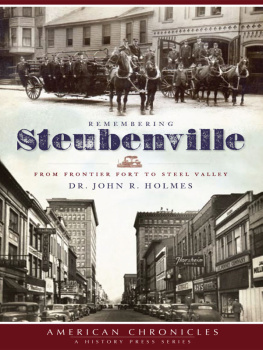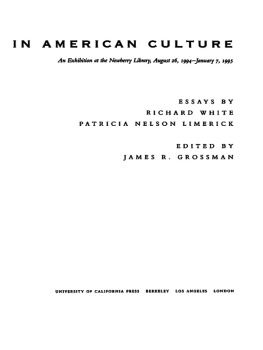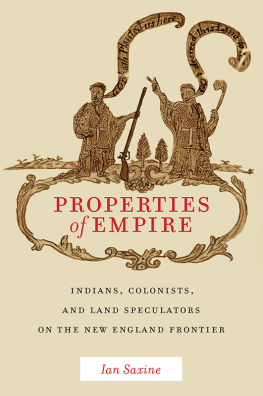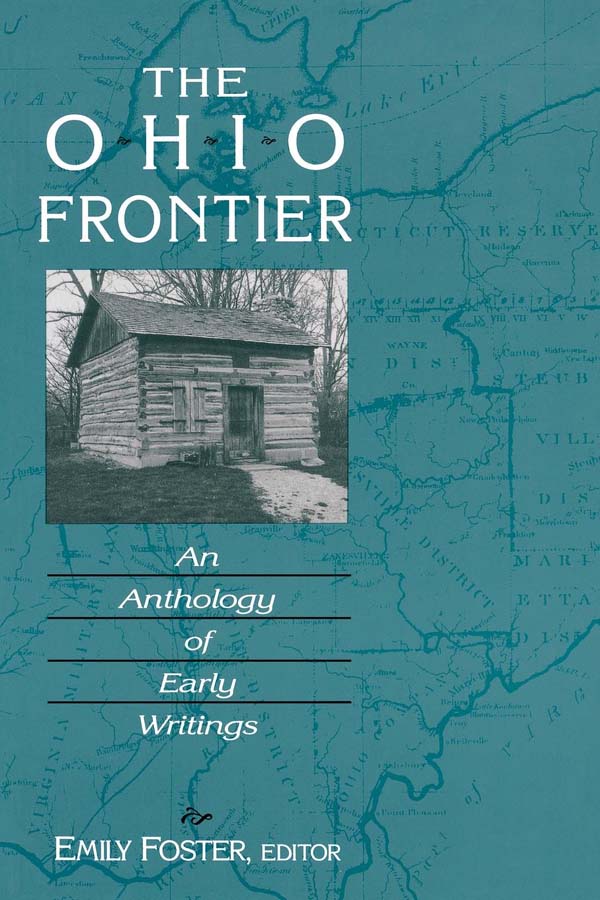THE OHIO RIVER VALLEY SERIES
Rita Kohn and William Lynwood Montell
Series Editors
THE
OHIO
FRONTIER
An Anthology
of Early Writings
EMILY FOSTER
Editor

Copyright 1996 by The University Press of Kentucky
Paperback edition 2000 by The University Press of Kentucky
Scholarly publisher for the Commonwealth,
serving Bellarmine University, Berea College, Centre
College of Kentucky, Eastern Kentucky University,
The Filson Historical Society, Georgetown College,
Kentucky Historical Society, Kentucky State University,
Morehead State University, Murray State University,
Northern Kentucky University, Transylvania University,
University of Kentucky, University of Louisville,
and Western Kentucky University.
All rights reserved.
Editorial and Sales Offices: The University Press of Kentucky
663 South Limestone Street, Lexington, Kentucky 40508-4008
www.kentuckypress.com
08 07 06 05 04 2 3 4 5 6
The Library of Congress has cataloged the hardcover edition as
follows:
The Ohio frontier : an anthology of early writings / Emily Foster,
editor.
p. cm. (The Ohio River Valley series)
Includes bibliographical references (p. ) and index.
ISBN 0-8131-1957-X (alk. paper)
1. OhioHistoryTo 1787Sources. 2. OhioHistory1787
1865Sources. 3. Frontier and pioneer lifeOhioSources.
4. Indians of North AmericaOhioHistorySources. I. Foster,
Emily, 1945 . II. Series.
F495.0353 1996
977.1dc20 95-45218
ISBN 0-8131-0979-5 (pbk. : alk. paper)

| Member of the Association of
American University Presses |
Contents
Illustrations and Maps
Illustrations
Maps
Series Foreword
The Ohio River Valley Series, conceived and published by the University Press of Kentucky, is an ongoing series of books that examine and illuminate the Ohio River and its tributaries, the lands drained by these streams, and the peoples who made this fertile and desirable area their place of residence, of refuge, of commerce and industry, of cultural development and, ultimately, of engagement with American democracy. In doing this, the series builds upon an earlier project, Always a River: The Ohio River and the American Experience, which was sponsored by the National Endowment for the Humanities and the humanities councils of Illinois, Indiana, Kentucky, Ohio, Pennsylvania, and West Virginia, with a mix of private and public organizations.
The Always a River project directed widespread public attention to the place of the Ohio River in the context of the larger American story. This series expands on this significant role of the river in the growth of the American nation by presenting the varied history and folklife of the region. Each books story is told through men and women acting within their particular place and time. Each reveals the rich resources for the history of the Ohio River and of the nation afforded by records, papers, and oral stories preserved by families and institutions. Each traces the impact the river and the land have had on individuals and cultures and, conversely, the changes these individuals and cultures have wrought on the valley with the passage of years.
As a force of nature and as a waterway into the American heartland, the Ohio and its tributaries have touched us individually and collectively. This series celebrates the story of that river and its valley through multiple voices and visions.
Emily Fosters The Ohio Frontier, through first-person accounts, illuminates life in the region from the initial encounters of Europeans and Native Americans to the growing settlement of the Northwest Territory and, finally, to the 1840s removal of major tribal influence. Foster shows that the dispossession of the Natives by white settlement is a major defining theme in the history of Ohiothe state as well as the valley as a whole. This is a part of the story that has been neglected. The uniqueness of Fosters book is her willingness to allow these voices, from roughly 1750 to 1843, to speak directly to us without imposing her interpretation.
This gathering allows the reader to experience the Ohio country as a frontier, to be part of life as it was lived, to feel how people felt and hear what they thought about coming to the very fringes of the frontier, and to learn the thoughts and deeds of the people who saw them coming.
Removal of a significant part of the original population has resulted in loss and alienation by those who did the removing as well as by those who were forced to leave. We can no longer see or understand the landscapes that enticed hunters, squatters, traders, land speculators, missionaries, and eventually farmers and entrepreneurs to give up homes along the Atlantic seaboard or, in the case of direct immigration, to forge a new pattern of settlement. They changed the country beyond all recognition, as Foster shows, and few mementos remain of what the Ohio country was like before white people transformed it.
How could those who felt the need to cut down forests and drain swamps have known that some hundred and fifty years later the people now living on their improved land would be seeking ways to recapture a sense of the original place, or that those who were forcibly removed would be welcomed back as teachers? The words Foster brings to us help us visualize our past and prepare for the future. The Ohio Frontier joins the other titles of the Ohio River Valley Series to make history meaningful.
Rita Kohn
Lynwood Montell
Series Editors
Acknowledgments
My greatest debt is to the Ohio Humanities Council, without whose funding this book would not exist. Most particularly, I am grateful to Oliver Jones, executive director, who prodded me to write a grant proposal, gave encouragement and support throughout the long months of compiling the anthology, and participated in the search for a publisher.
I would like to thank also the staff of the Ohio Historical Society archives, especially Charles Arp. This wonderful repository of Ohio history put most of the contents of the anthology at my fingertips, and the patience and helpfulness of the staff were invaluable.
For the boundless enthusiasm and wisdom of Rita Kohn, co-editor of the Ohio River Valley Series, I am deeply grateful; she conveyed more confidence in my powers than I felt. I also would like to thank James ODonnell and Charles Cole for reading the manuscript and pulling me back from the brink of many pitfalls. Whatever errors remain are mine alone. Also, to Charles Cole, for cheerfully taking time from his own projects to make suggestions about mine, and to Jack and Scott DeGroff, who drove me on a cold, wet day to find the grave of Daniel Diver, I extend my further thanks.
Mike Barber, who photographed a number of the illustrations, put his considerable photographic expertise at the disposal of a photo dunce. I am in his debt.
I am grateful to the Minster Historical Society for kindly granting permission to quote from the diaries of Liwwt Bke, which the society published as Liwwat Bke, 18071882.
Finally, for more than two years of watching my evenings and weekends consumed by this project, and for not complaining most of the time, I am indebted to my husband, Lee Brown.







